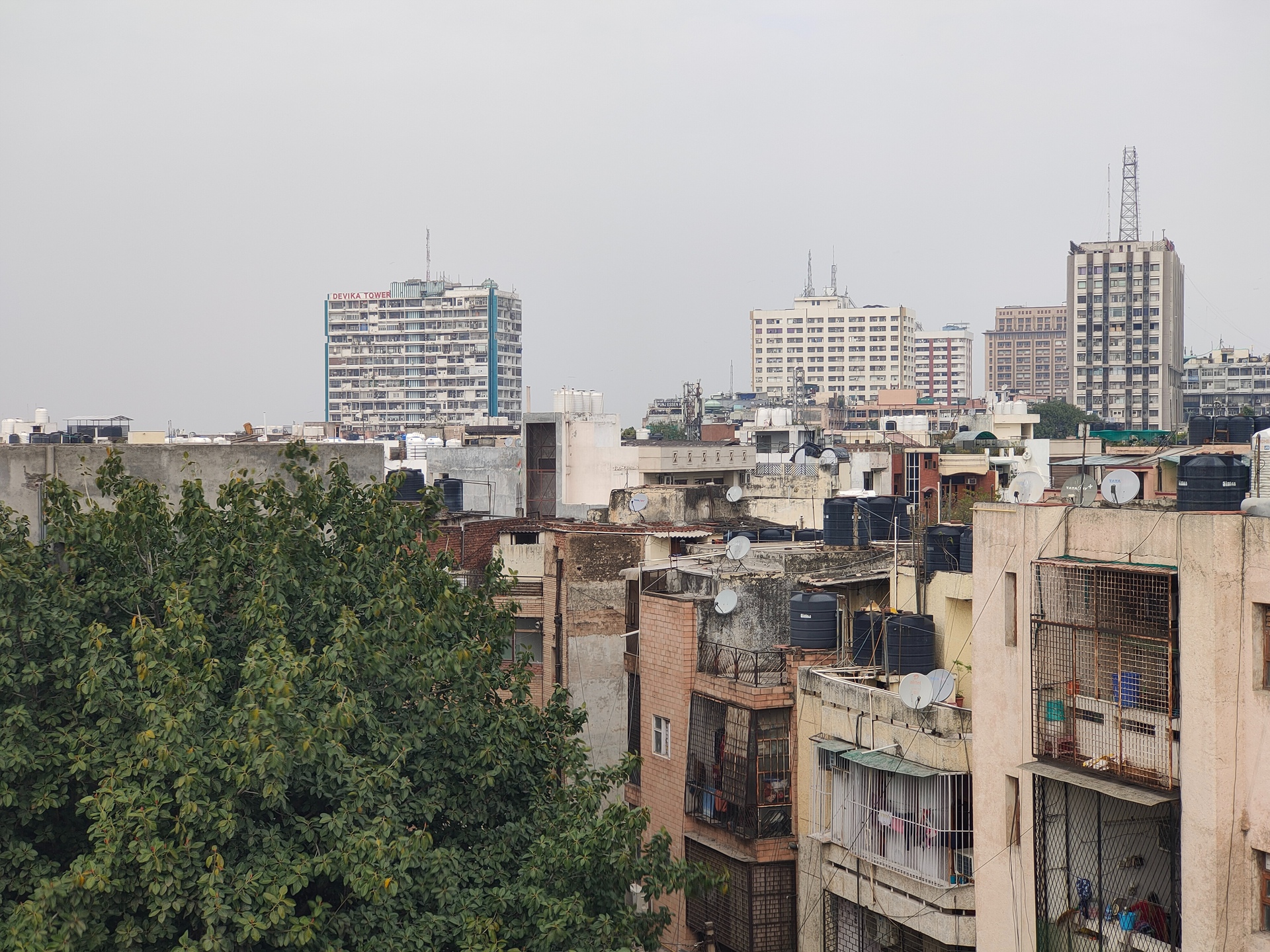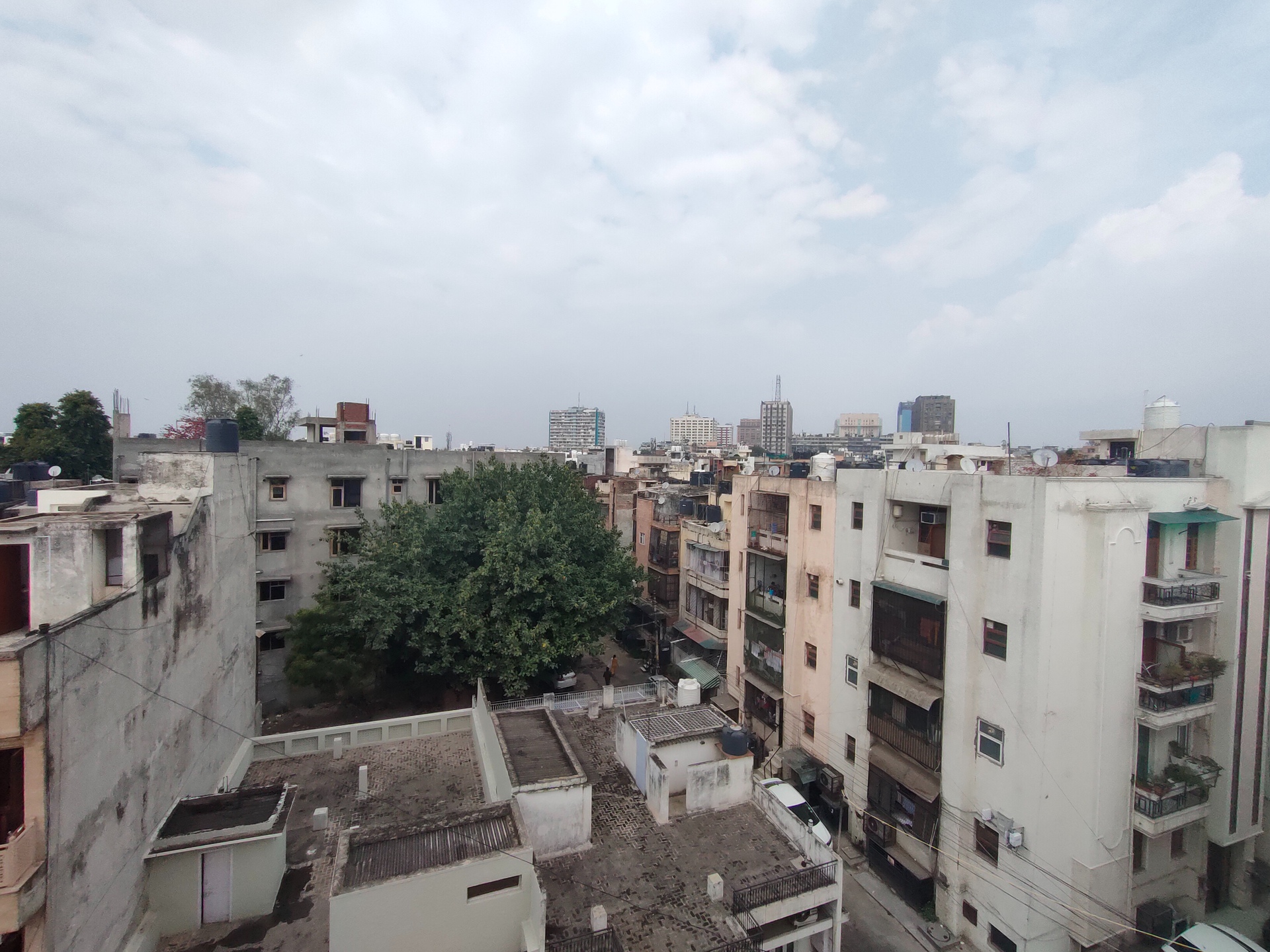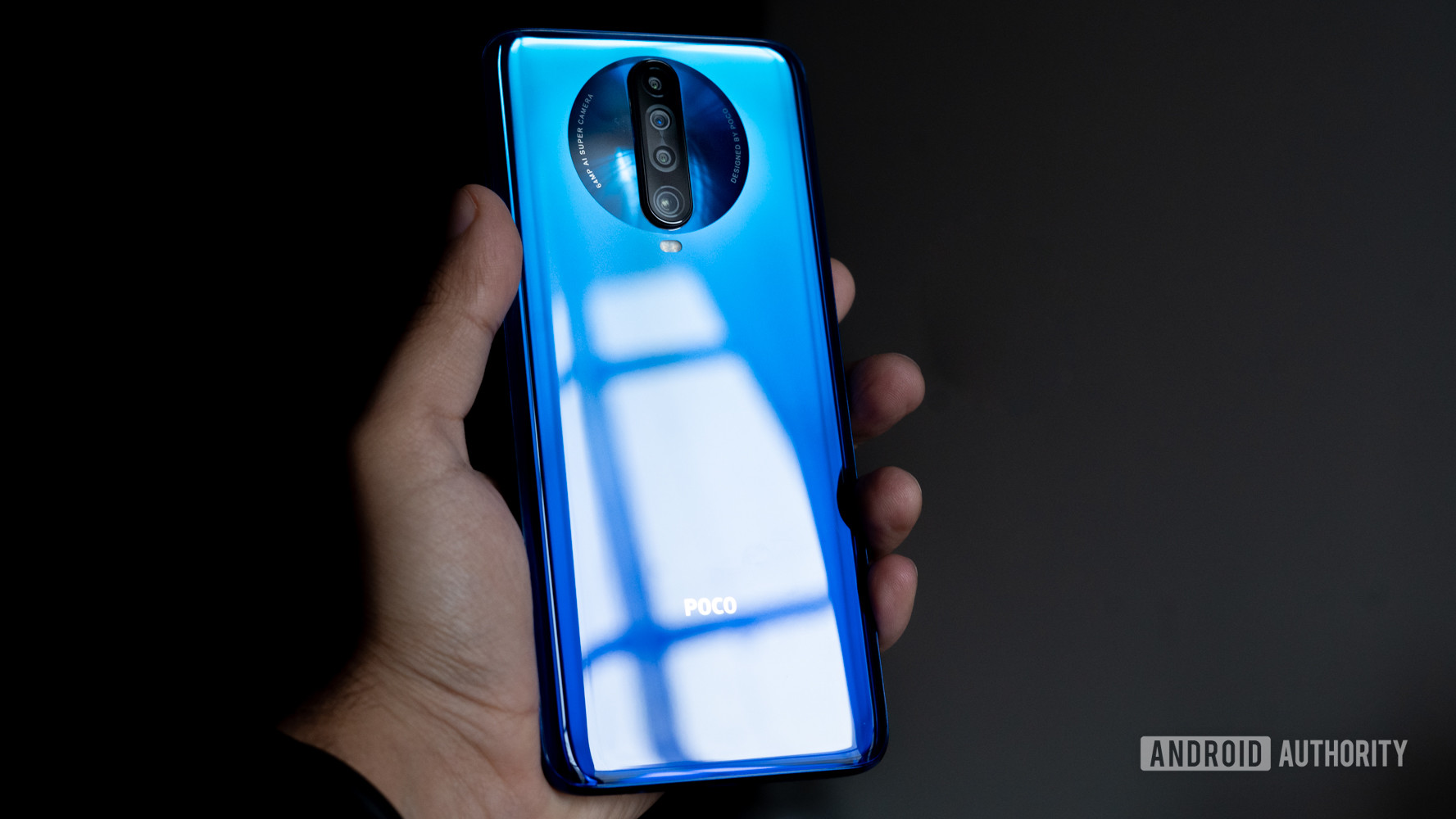
It seems like, with every successive review of a mid-range smartphone, I end up repeating myself. Consumers have never had it this good. The mid-range segment is where the competition is at its most fierce, and Chinese players are making a killing. Amongst these, Realme, in particular, has been on a roll with a steady launch schedule that constantly ups the ante as far as spec packages go. What works in the company's favor is that the software complements the hardware. In fact, the Realme X2 won our best value smartphone award for 2019, a testament to how far the company has come.
The Realme 6 Pro is the company's latest mid-ranger and it takes the fight straight to Xiaomi. It's got the top specs, a stunning design, and an extremely versatile set of cameras. Does the phone have what it takes to one-up the competition? We find out in the Android Authority Realme 6 Pro review.
Design: A bit of old, and a bit of new
Realme has always done a good job of updating it designs while keeping a sense of familiarity across every successive product generation. This continues to be true for the Realme 6 Pro as well. The most noticeable change is the switch to a cut-out style selfie camera. Not just a single camera at that. The Realme 6 Pro has dual selfie cameras that let you swap to a wider field of view to get more people in the frame.

The screen size is now larger at 6.6-inches. The Full HD+ display has a 90Hz refresh rate, which should make scrolling through the interface and gaming that much smoother. Unlike some other phones, the Realme 6 Pro seems to maintain a steady 90Hz refresh rate with no hint of jankiness.
The phone's screen manages to hold a steady 90Hz refresh rate and displays no stutters or jankiness.
There's little to complain about the screen either. Typical of Realme, the panel is punchy to the point of being slightly oversaturated. This can, however, be tuned using the display settings. Brightness levels proved to be more than sufficient for outdoor use.
Elsewhere, the fingerprint scanner is now integrated into the power button on the right side of the phone. Personally, I don't mind this at all. It was particularly fast at unlocking the phone and a pleasure to use.
The fingerprint scanner is integrated into the power button and was a pleasure to use.
The rest of the layout is standard, with the USB-C port and headphone jack occupying the lower edge of the phone. The polycarbonate frame helps to keep the weight low, though I'm not a fan of the plastic volume buttons. They feel cheap and slippery when compared to the rest of the hardware.
The back of the Realme 6 Pro sees yet another variation on the popular gradient design. Realme's take on it, especially in the lightning-blue color variant, looks elegant and understated while still being eye-catching. Great job, Realme!

Gorilla Glass 5 on the back and the front means you can assured of some scratch resistance. However, the back panel is a fingerprint magnet and I'd recommend using the supplied case. The phone is not waterproof.
The Realme 6 Pro feels premium to the touch, but the volume buttons are a letdown.
Overall, Realme did a mostly stellar job evolving the hardware. Cheap-feeling volume buttons aside, the Realme 6 Pro is a premium piece of kit that doesn't weigh too much in your hand and has good ergonomics to boot.
How's the performance on the Realme 6 Pro?
The Realme 6 Pro is powered by Qualcomm's new 720G processor, which was designed specifically for affordable mid-range devices. Built on an 8nm process, the 720G incorporates eight Kryo 465 cores. These are arranged in dual clusters of two Cortex A76 cores and another cluster of six Cortex A55 cores to deliver better battery life. Meanwhile, the GPU is the Adreno 618.
Realme has a history of doing a pretty good job of optimizing the software for the hardware. This continues to be the case here. General day-to-day usability is top-notch. The interface works smoothly when locked at 90Hz.

Gaming performance was nothing to scoff at. I played a few rounds of PUBG and the phone easily held up at the highest settings without any stutters. PUBG, however, only supports 60Hz.
The Realme 6 Pro's biggest competitor is the recently launched Poco X2. The latter boasts an even faster 120Hz display. However, the higher GPU requirements for the display negate the advantages of the overclocked GPU on the Poco X2's Snapdragon 730G chipset. The two should be evenly paced for the most part.
All this to say that you needn't worry about performance. The Realme 6 Pro should be able to take anything you throw at it and then some.
The 4,300mAh battery is marginally bigger than the cell in the Realme 5 Pro and I found myself getting a day and a half of solid use from the phone. Even when pushed hard, the Realme 6 Pro easily lasted from morning through night.

When it is time to top off the battery, the included 30W charger is welcome. The phone takes just about an hour to go from 0 to 100%. There is no wireless charging support here, but you shouldn't expect that at this price point anyway.
On the software front, there's a mish-mash of old and new. The phone is the first to ship with Realme UI out of the box based on Android 10. It even has a fairly recent February security patch installed. Realme UI in its current form is little more than a re-skinned version of Color OS.
Ads and bloatware continue to be a problem on mid-range hardware.
There is a sprinkling of stock-like additions, like a re-skinned notification shade and icons. A full-blown dark mode is also available. Unfortunately, the bloatware remains. I counted over 20 additional apps. There's no reason why the browser should be spamming the notification shade, never mind on a phone that has just been set up.
Does the Realme 6 Pro have a good camera?

A smartphone camera is more than the function of hardware. Computational photography and algorithms play a big role in shaping the kind of images you can expect from your phone. Realme has been fairly consistent on this front and has steadily improved image quality across the board. This time around, the camera setup offers an ultra-wide lens, a telephoto lens, as well as a dedicated macro camera in addition to the main 64MP shooter.

The primary sensor is a 64MP Samsung GW1 that pixel-bins images down to 16MP to improve image quality. For the most part, pictures look pretty good. The camera is tuned to boost sharpness, and this is particularly noticeable in the foliage. There is a decent amount of detail, though pixel-peeping reveals aggressive noise reduction. The HDR mode works quite well and was able to retain the highlight and there is a good amount of detail in shadow regions. In fact, dynamic range isn't too bad for a mid-ranger.
 Realme 6 Pro - Ultrawide Realme 6 Pro - Telephoto
Realme 6 Pro - Ultrawide Realme 6 Pro - Telephoto

There is a huge variance in white balance performance when switching between camera modes. This is particularly noticeable when alternating between ultra-wide and telephoto. There are trade-offs in either. For example, the ultra-wide mode falls short on dynamic range while the telephoto lens isn't very sharp and there are noticeable artifacts.
 Realme 6 Pro indoors low light Realme 6 Pro indoors night mode
Realme 6 Pro indoors low light Realme 6 Pro indoors night mode

The star of the show here has to be night mode. Realme has perfected the science of delivering an excellent low-light shot. Even without activating night mode, the shot is certainly usable for social sharing. The pixel-binned image helps keep noise levels low and the shutter speed remains fast enough to prevent blur. However, details do suffer.
Switching over to night mode sorts this out. Sure, there is a noticeable amount of sharpening, but if this means the difference between getting a shot or not, I can live with it. If your smartphone photography is all about sharing to social media, the over-sharpening shouldn't be a major concern.

We've seen dual selfie cameras before, though quite often the second camera is a depth-sensing module. Not so here. The Realme 6 Pro adds a second wide-angle camera to the mix and I think this is a fantastic way to capture larger groups.
 Realme 6 Pro selfie main Realme 6 Pro selfie wide angle
Realme 6 Pro selfie main Realme 6 Pro selfie wide angle

The 16MP front camera captures evenly lit images, though it does brighten up the subject even with the image enhancement options turned off. This is usually the case with most mid-range smartphones. The photos are nicely detailed and well saturated.
If taking selfies is your jam, this phone will be right up your alley.
If taking selfies is your jam, this phone will be right up your alley. The wide-angle camera is competent. The 8MP sensor captures a fair amount of detail, though the dynamic range isn't quite as good as from the primary camera.

Video recording on the Realme 6 Pro tops off at 4K at 30fps. Video footage from the ultra-wide camera goes up to 1080p at 30fps. Both cameras capture finely detailed, saturated video, though, once again, a slight amount of over-sharpening is noticeable.
Check out full resolution camera samples from the Realme 6 Pro here.
Realme 6 Pro specifications
| Realme 6 Pro | |
|---|---|
| Display | 6.6-inch, FHD+ IPS LCD 2,400 x 1,080 resolution 20:9 aspect ratio 399ppi 90Hz Gorilla Glass 5 |
| Chipset | Qualcomm Snapdragon 720G 2x 2.3GHz Kyro 465 Gold 6x 1.8GHz Kyro 465 Silver |
| GPU | Adreno 618 |
| RAM | 6, 8GB RAM |
| Storage | 128GB |
| MicroSD | Yes |
| Battery | 4,300mAh USB-C 30W charging (VOOC 4.0) |
| Camera | Rear: 64MP f/1.8 12MP f/2.5 telephoto 8MP f/2.3 ultra-wide 2MP f/2.4 macro Video: 4K at 30fps, 1080p at 120fps Front: 16MP f/2.1 8MP f/2.2 wide-angle |
| IP Rating | No |
| Headphone port | Yes |
| Connectivity | Dual nano-SIM slots WiFi 802.11 a/b/g/n/ac 2.4/5GHz GPS, aGPS, GLONASS, GALILEO, NavIC, BDS Bluetooth 5 Supports aptX, aptX HD, and LDAC |
| Security | Side-mounted fingerprint scanner Face unlock |
| Software | Android 10 Realme UI |
| Colors | Lightning Blue, Lightning Orange, Lightning Red |
| Dimensions | 163.8 x 75.8 x 8.9mm |
| Weight | 184g |
Does the Realme 6 Pro offer good value for money?
The Realme 6 Pro offers meaningful improvements all around, but at a significant price bump. At Rs. 16,999 (~$232) for the base 64GB variant with 6GB of RAM, it is an increase of Rs. 3000 (~$40) over the Realme 5 Pro.

The phone faces stiff competition from new and established devices alike. On one hand, there's the newly resurrected Poco X2. The X2 packs a slightly faster Snapdragon 730G chipset and, more importantly, a cool new 120Hz display. However, the software optimization was lackluster.
Another excellent option is the Redmi K20. This one has been around for a while, but the construction remains top-tier. The Snapdragon 730G chipset performs well, and the cameras definitely stand out. The light-up, pop-out camera serves as a nice party trick to round out the package.
Realme 6 Pro review: Should I buy it?
The Realme X2 delivers almost everything that the company promises. The hardware is well built and beautiful to look at. Volume buttons aside, the construction truly belies its price. The internals keep everything running smoothly, more so when you factor in that 90Hz display.

The camera can be hit or miss. The primary shooter produces satisfactory images, but the ultra-wide and telephoto lenses don't always nail the exposure and white balance. That said, the front-facing cameras make the Realme 6 Pro a selfie shooter's delight.
The Realme 6 Pro goes most of the way to justify its price and is easy to recommend.
All in all, the Realme 6 Pro goes most of the way to justify its price. The faster Snapdragon 730G chipset would have gone a long way in making the phone a flat-out winner in the category, but this is a small misstep. This phone is very easy to recommend to almost anyone looking for a new mid-ranger.











No comments:
Post a Comment